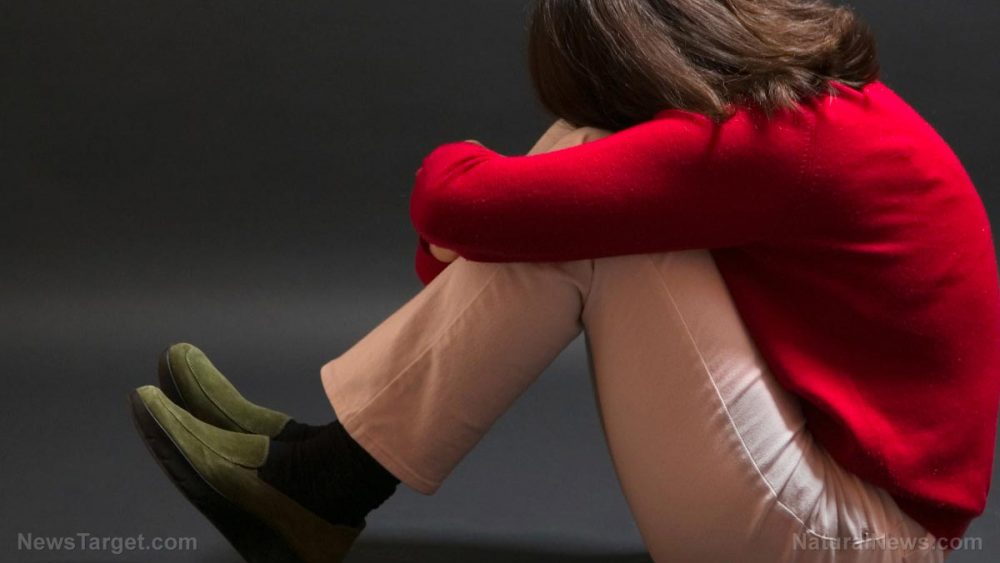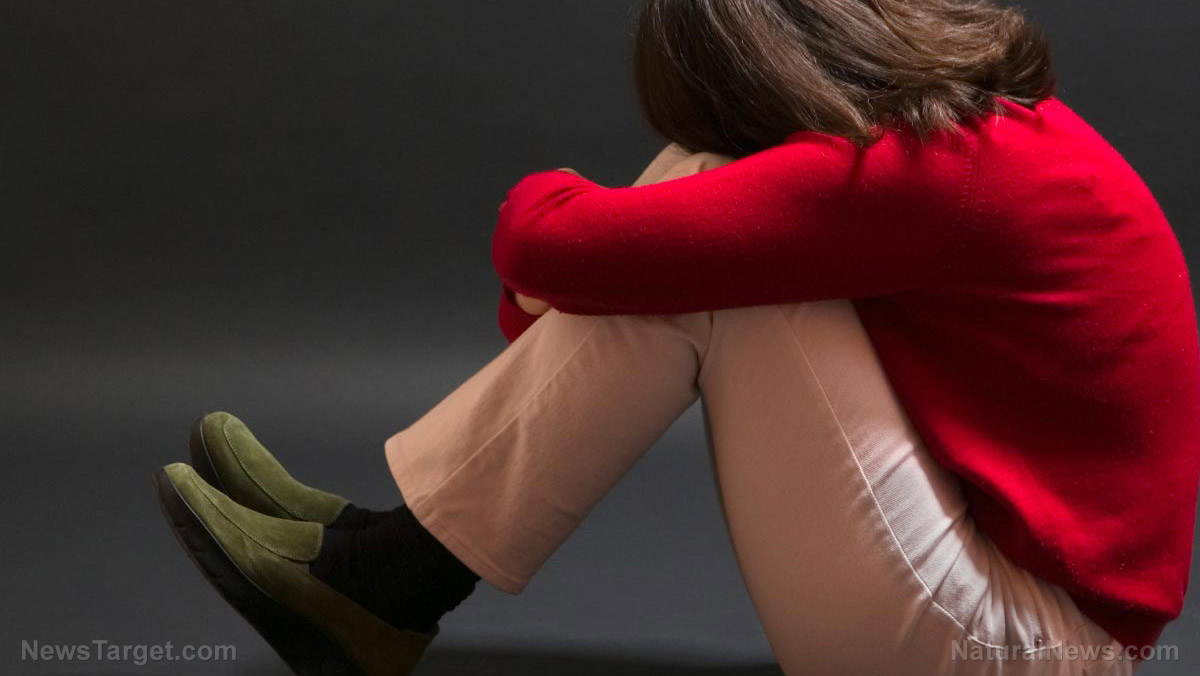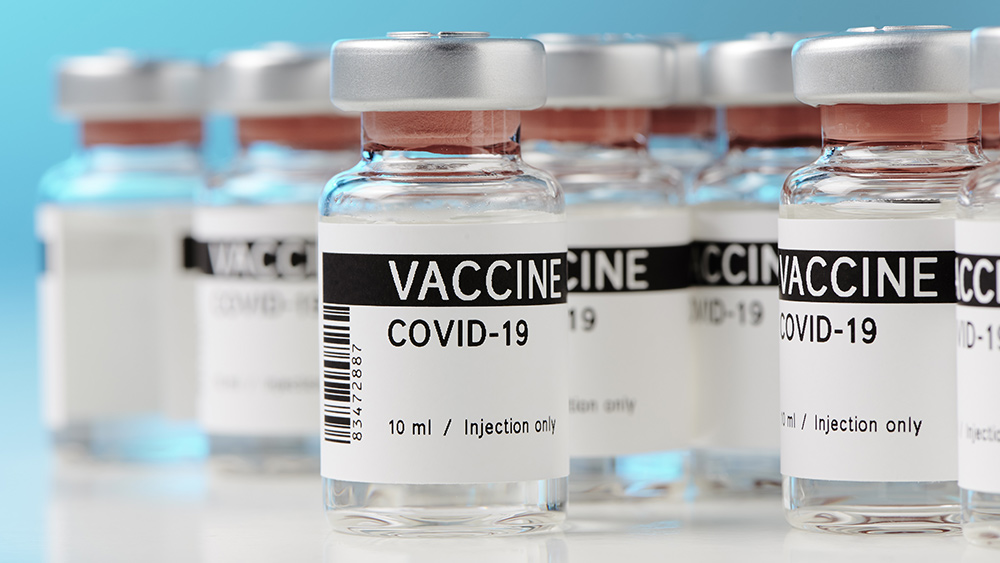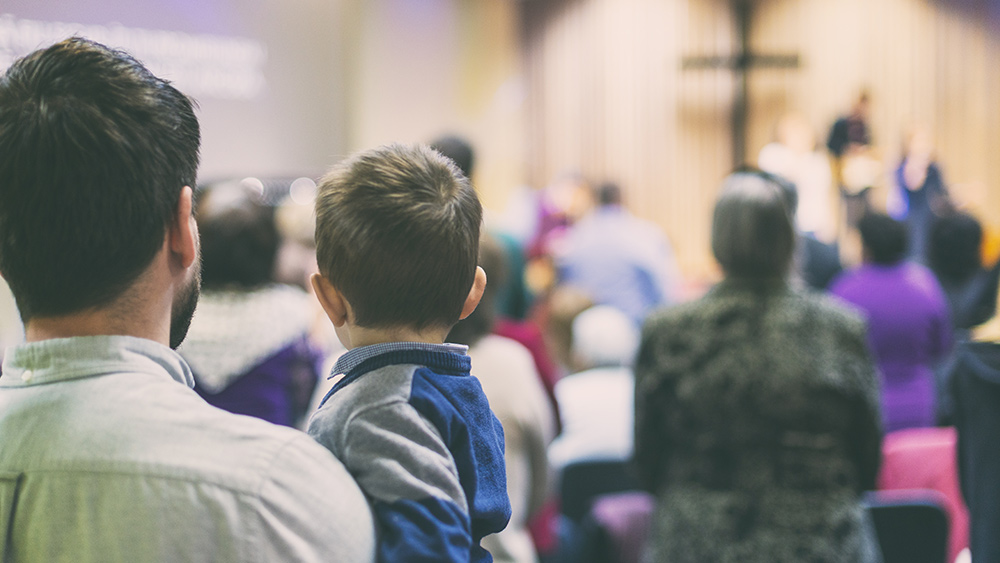60,000 British children suffer from depression due to COVID-19 lockdowns, study finds
05/06/2022 / By Belle Carter

Lockdowns due to the Wuhan coronavirus (COVID-19) have resulted in a massive spike in mental health cases among children in the United Kingdom.
A new study found that COVID-19 lockdowns caused tens of thousands of British children to suffer clinical depression. A further examination of data published in the Royal Society Open Science journal indicated that British adolescents aged 11 to 15 showed greater levels of depressive symptoms and lower levels of life satisfaction.
Researchers detected a 27.1 percent prevalence of depression among their sample, a number significantly higher than would have occurred without lockdowns. That number equates to an additional 60,000 children experiencing high levels of depression, according to the study’s metrics.
The journal defined high depressive symptoms using a 13-item self-report measure of depressive symptoms during the previous two weeks, with possible total scores ranging from 0 to 26. Higher scores indicate greater depression.
“After controlling for baseline scores and several school and pupil-level characteristics, depressive symptoms were higher in the COVID-19 group,” the study found. “These findings demonstrate that the COVID-19 pandemic increased adolescent depressive symptoms beyond what would have likely occurred under non-pandemic circumstances.”
According to reports, 400,000 British children “were referred to mental health specialists last year for things like eating disorders and self-harm.” (Related: Experts warn impact of coronavirus pandemic on children’s mental health is “increasingly alarming.”)
An abrupt rise in children’s mental health issues has also been reported in the U.S. during the global pandemic. Data from the Centers for Disease Control and Prevention (CDC) show that the emergency department visits for suspected suicide attempts from February to March 2021 were more than 50 percent higher for teen girls and more than four percent higher for boys compared to 2019.
The substantially greater number of girls seeking help in the U.S. was in agreement with the finding by the U.K. study that “the impact of the pandemic may have been greater in females.” The U.K. study found that girls showed “greater depressive symptoms,” behavioral difficulties and “lower well being” post-pandemic.
Hospitals in the U.S. also saw significant spikes in visits from children and adolescents seeking help for mental health issues from April to October 2020, with a 31 percent increase in 12- to 17-year-olds and a 24 percent increase for ages five to 11. The mental health of children has spiraled down in connection to the lockdowns that banned them from going to school and doing outdoor activities with schoolmates and friends.
From June 2020 to late spring this year, an average of five children was admitted to the medical school’s teaching hospital every week in East Carolina University in Greenville, North Carolina. They were sent to the medical institution due to overdose on medications, including acetaminophen, Ritalin, antidepressants and even opiates.
Back in May, the Children’s Hospital Colorado (CHCO) declared a state of emergency because of the sharp increase in number of children it had to treat for mental health issues. Kids coming in for anxiety and depression had doubled and tripled in number, respectively. Substance abuse and eating disorder cases also increased compared to pre-pandemic levels.
“We really have never seen anything like this rapid growth in kids presenting with mental health problems and the severity of those problems,” said Jenna Glover, CHCO’s director of psychology training.
UK doctors: Mental health pandemic to follow COVID-19 lockdowns
U.K. doctors have warned before that a mental health pandemic may occur due COVID-19 lockdowns. About 10 million people in England, including 1.5 million children may need treatment for various mental health concerns.
The Royal College of Psychiatrists (RCPsych) and the National Health Service (NHS) Confederation officials told the Guardian that there are currently 1.6 million British people waiting to get mental health treatment. Around eight million of the population cannot even get on a waiting list despite being eligible for mental health assistance.
NHS Confederation Chief Executive Matthew Taylor said: “For a worrying number of people, the virus is leaving a growing legacy of poor mental health that services are not equipped to deal with adequately at present. It is no wonder that health leaders have dubbed this the second pandemic.”
Meanwhile, RCPsych President Dr. Adrian James noted that millions of children, young people and adults are seeking help from mental health services that are overstretched and under-resourced. “We urgently need a fully-funded mental health recovery plan to ensure everyone with a mental illness can get the help they need, when they need it,” James said.
Visit Pandemic.news for more news related to the COVID-19 pandemic.
Watch the video below about how the pandemic lockdown depression caused children to call suicide hotline.
This video is from the InfoWars channel on Brighteon.com.
More related stories:
An invisible danger: Coronavirus pandemic a threat to the mental health of Americans.
Coronavirus pandemic creating “perfect storm” for huge global mental health crisis.
Mental health crisis, tyrannical mandates characterize pandemic – Brighteon.TV.
Lockdowns, masks destroying mental health of children and young people.
Sources include:
Submit a correction >>
Tagged Under:
adolescents, children's health, covid-19, depression symptoms, lockdown, lockdowns, medical fascism, Medical Tyranny, mental health, mental health pandemic, Mind, pandemic, research, teenagers, United Kingdom
This article may contain statements that reflect the opinion of the author





















